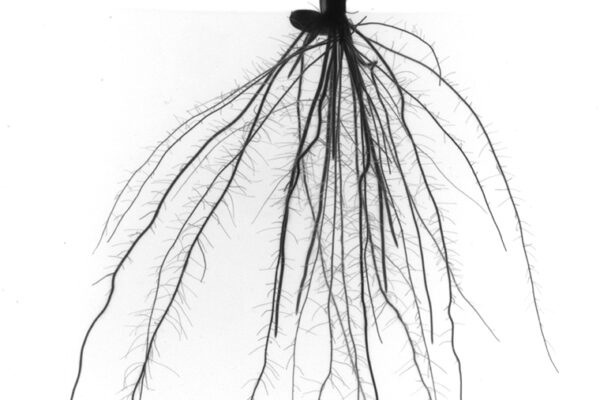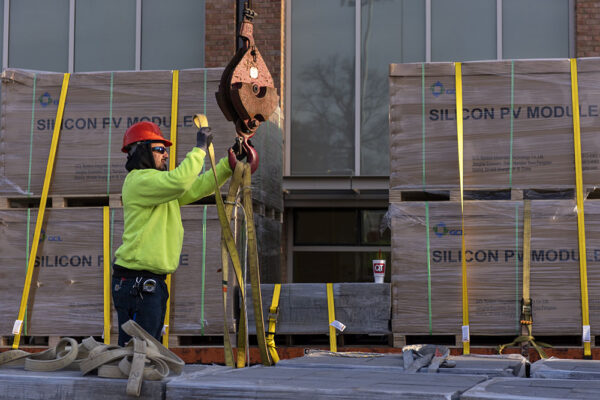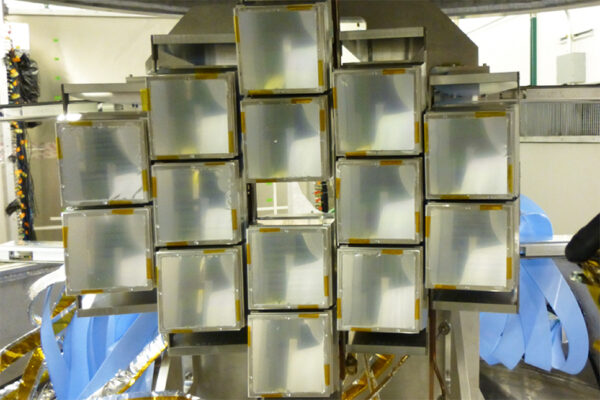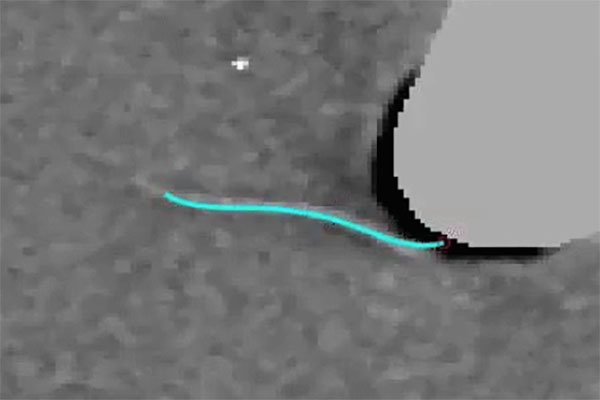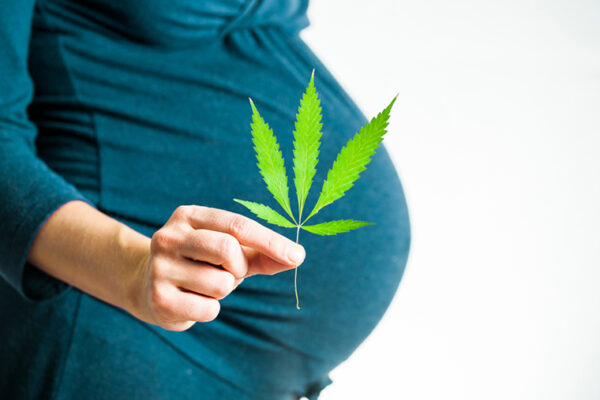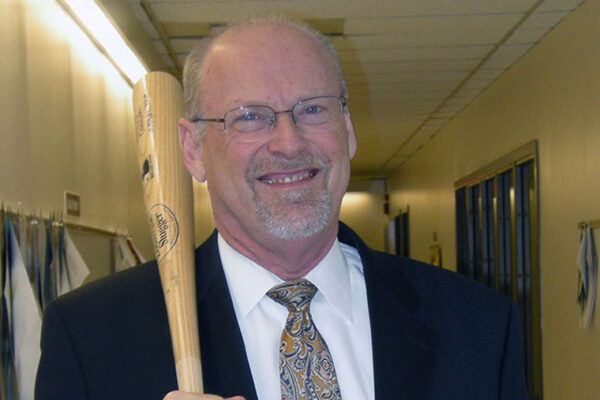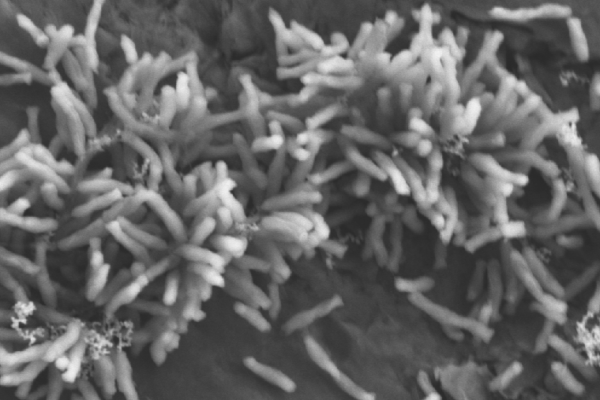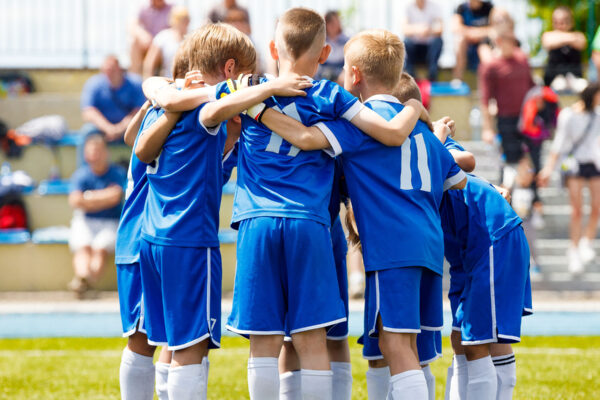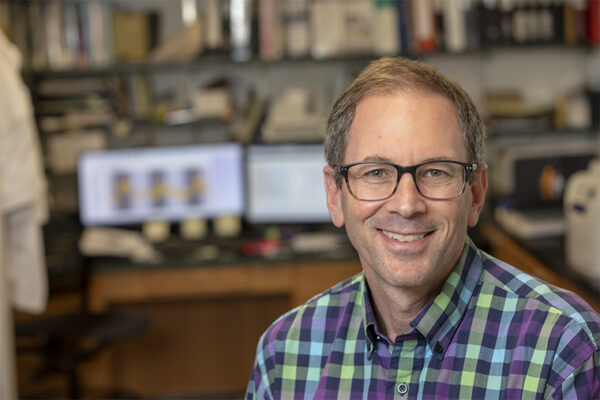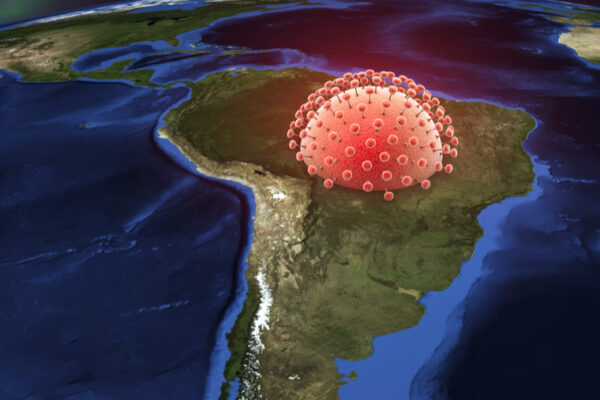Rusted root: Weedy rice repeatedly evolves ‘cheater’ root traits
Researchers led by Kenneth M. Olsen in Arts & Sciences used a new imaging technique to reveal a takeover strategy that has worked for weedy rice over and over again: roots that minimize below-ground contact with other plants.
Solar expansion continues at Washington University
Washington University in St. Louis has launched a new $3.5 million solar project. When complete, it will generate 2.5 megawatts of energy across the university, enough to take 480 cars off the road.
‘Featherweight oxygen’ discovery opens window on nuclear symmetry
Researchers in Arts & Sciences have discovered and characterized a new form of oxygen dubbed “featherweight oxygen” — the lightest-ever version of the familiar chemical element oxygen, with only three neutrons to its eight protons.
Making waves: Researchers shed light on how cilia work
An interdisciplinary team of researchers from the McKelvey School of Engineering and the School of Medicine have found the most efficient length for cilia, the tiny hair-like structures designed to sweep out the body’s fluids, cells and microbes to stay healthy.
Cannabis during pregnancy bumps psychosis risk in offspring
Pregnant women who use cannabis may slightly increase the risk their unborn child will develop psychosis later in life, suggests new research from Washington University in St. Louis.
The physics of baseball
David Peters, the McDonnell Douglas Professor of Engineering in the McKelvey School of Engineering at Washington University in St. Louis, has a body of work in applied aerodynamics and a host of academic honors, but he’s also a baseball fan. That’s why watching a baseball game takes on a whole new spin, aerodynamically speaking.
How electricity-eating microbes use electrons to fix carbon dioxide
Led by Arpita Bose, assistant professor of biology in Arts & Sciences, a Washington University team showed how an electricity-eating microbe takes up electrons from conductive substances like metal oxides or rust to reduce carbon dioxide. The work is described in the journal Nature Communications.
How team sports change a child’s brain
Adult depression has long been associated with shrinkage of the hippocampus, a brain region that plays an important role in memory and response to stress. Now, new research from Washington University in St. Louis has linked participation in team sports to larger hippocampal volumes in children and less depression in boys ages 9 to 11.
Washington People: Erik Herzog
Erik Herzog, professor of biology in Arts & Sciences, studies the molecules, cells and circuits of mammalian circadian timing. He also supports and encourages younger neuroscience researchers, from elementary school all the way through doctoral programs.
Are there Zika reservoirs in the Americas?
A researcher at Washington University in St. Louis travels the Americas, collecting feces from nonhuman primates to determine the risk of Zika reservoirs.
Older Stories
